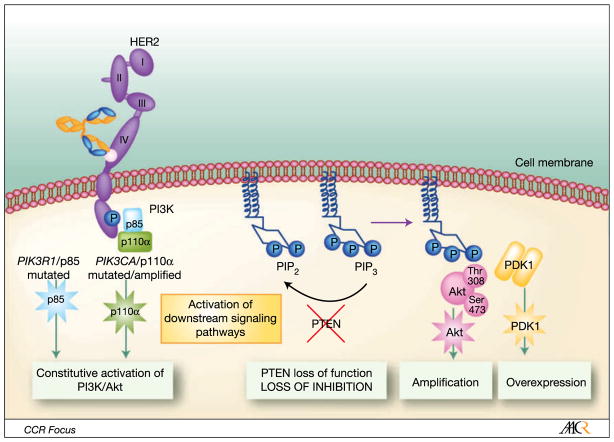Fig. 4.
General mechanisms of resistance to trastuzumab: presence of upregulation of HER2 downstream signaling pathways. PTEN is a tumor suppressor. Trastuzumab binding stabilizes and activates PTEN and consequently down-regulates the PI3K/Akt signaling pathway (39). When PTEN function is lost, PI3K remains constitutively active regardless of binding of trastuzumab to HER2. PTEN loss correlates with clinical unresponsiveness to trastuzumab treatment. Genomic aberrations in the PI3K pathway are a common event in a variety of cancer types (127). Multiple components of this pathway are affected by germline or somatic mutation, amplification, rearrangement, methylation, overexpression, and aberrant splicing, but only in a few instances PIK3CA and PTEN mutations are seen simultaneously (86). Genomic aberrations in the PI3K pathway produce constitutive activation of the pathway, which will signal downstream to the nucleus regardless of trastuzumab binding to HER2. This is the case with activating mutations of PIK3R1 and PIK3CA, encoding genes for PI3K p85α and p110α, respectively. Increased Akt kinase activity and PDPK1 overexpression have also been implicated with trastuzumab resistance.

